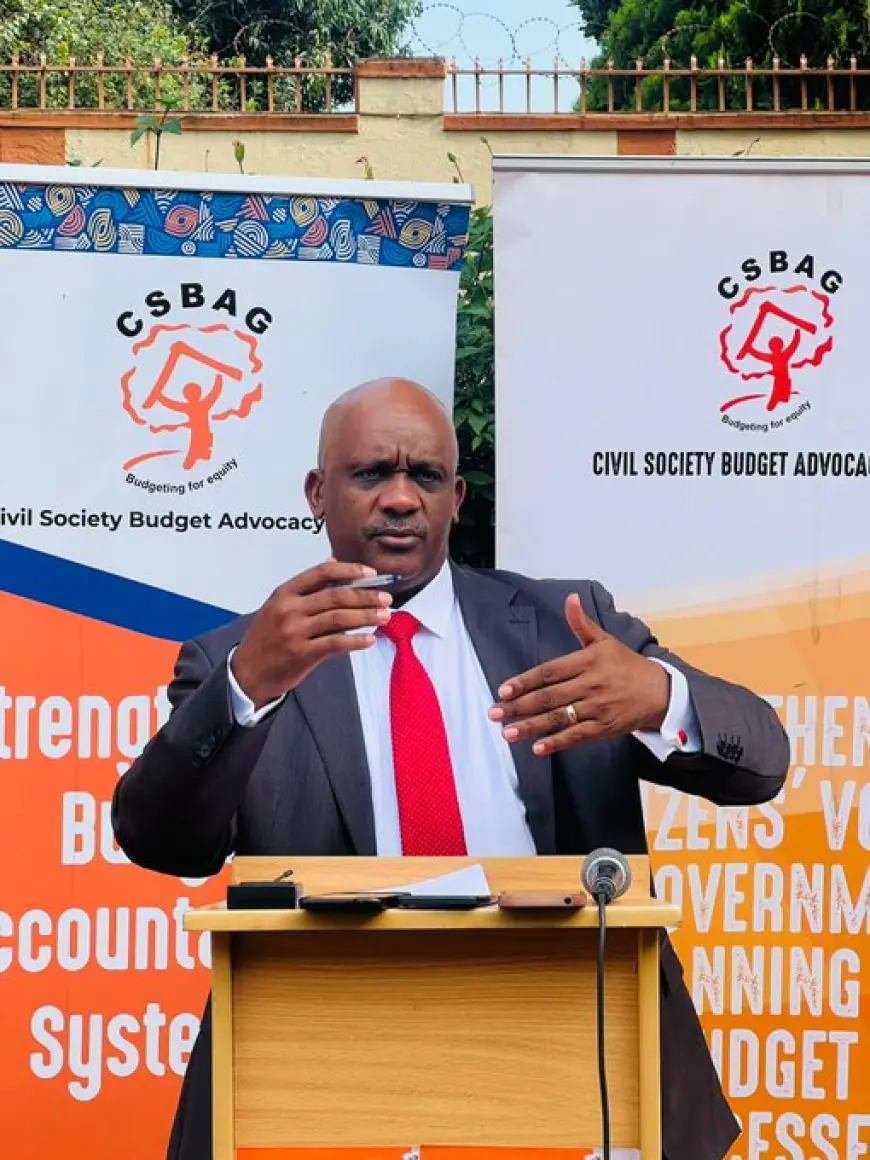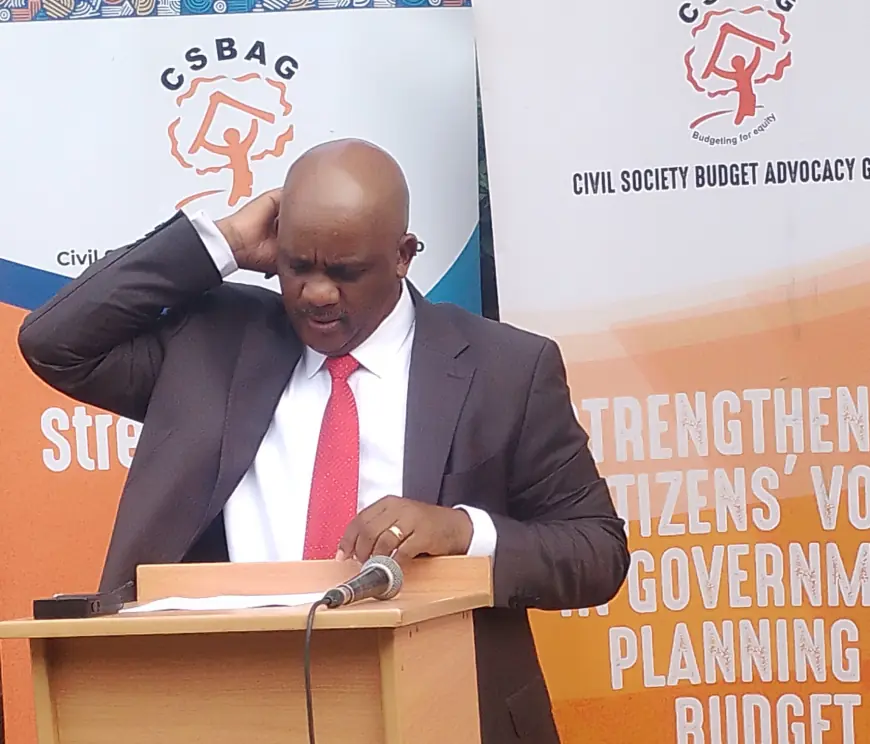Gov’t large-scale domestic borrowing increasing cost of credit to private investors: CSBAG

The Civil Society Organizations under the umbrella of the Civil Society Budget Advocacy Group (CSBAG) have urged the government to minimize domestic borrowing to allow the private sector access to low-cost credit from commercial banks which can go a long way in reducing the competition created by the competition for credit by both private and government agencies leading to increased demand for quick loans from money lenders that expose them to deeper financial problems.
This was revealed by the Executive Director of CSBAG Mr Julius Mukunda while addressing the media while making remarks on the issue of the government's move to cap money lenders lending rates.
“Capping money lender rates is a commendable move by the govt, but it addresses only a symptom of a deeper, more complex issue. The real problem lies in the fundamental drivers of the demand for expensive credit, even when reasonably priced alternatives are available” he said
He said that domestic arrears according to the OAG report of 2023 increased by 34.4% from UGX. 8.049 tn in 2022 to UGX. 10.818 trillion in 2023 adding that for FY202410.8 only UGX 200 billion has been budgeted to clear arrears out of the required 10.8trillion.
 Mr Julius Mukunda
Mr Julius Mukunda
During the press conference held at CSBAG offices on Wednesday 18th December 2024, Mr. Mukunda while reflecting on Uganda's economic journey in 2024 and sharing forecast trends for 2025, said that though the economy has continued to grow, registering a growth of 5.3% by the end of the first quarter FY2024/2025, and projected to grow between 6% and 6.5% by the end of the financial year, he said there are still challenges that have been identified by CSBAG that government need to address.
“Uganda’s economy has shown resilience, but challenges remain. The government must prioritize investments in education, infrastructure, and energy while tackling corruption and inefficiencies in public service delivery” he said
Monitory Policy:
On the issue of the Bank of Uganda, Mr. Mukunda urged the President of Uganda to appoint a Central Bank Governor, warning that the economic challenges faced this year and last year could escalate significantly in the upcoming election year.
He said that the central bank is critical in overseeing and regulating financial institutions, ensuring their stability and the public's trust in the economic system. Without a central bank governor, there is a significant leadership void that hampers effective governance, oversight, and response to emerging financial threats, such as the rising incidence of cybercrime and operational lapses in the banking sector.
"The lack of a Central bank governor highlights the critical need for a competent and active central bank governor to restore oversight, enforce regulatory measures, and improve cybersecurity within this financial sector. Our evaluation highlights the vital oversight role of the Bank of Uganda in making decisive measures and this will expand the financial sector. The delay in appointing a Governor is hindering the sector’s progress,” he said.
Fiscal Policy:
Mr Mukunda called upon the government to improve tax compliance, reduce tax exemptions, deepen collaboration across its entities on revenue collection, and intensify fiscal consolidation.
“Uganda Revenue Authority should increase the tax base rather that increasing the tax through tax education across all levels and close all avenues of leakage. In FY2023/24, URA fell short of its revenue target of UGX 29,671.9 billion by UGX 7,794.4 billion. Five months to the FY2024/25 revenue collected amounted to UGX 12,506.8 billion, which is only 39.1% of the target of UGX 31,982 billion. Realistic projections based on precedence indicate that this target will be difficult to achieve” he said.
The unemployment rate in Uganda according to the 2024 NPHC was recorded at 12.3% with female-denoted unemployment peaking at 14.2% compared to male-denoted at 10. 5%












